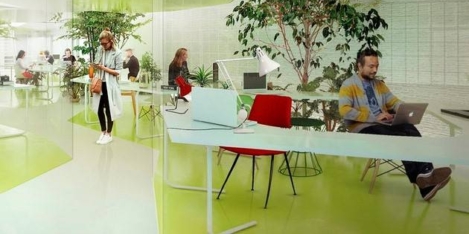February 21, 2018
Cities must harness potential of new technology to keep themselves moving
 The UK Government needs to develop a new transport strategy based on local partnerships to keep up with technological advances in areas such as self-driving cars, claims a new report. Rethinking Urban Mobility has been published by engineering company Arup, in collaboration with the London Transport Museum, law firm Gowling WLG and transport company Thales. The report coincides with the publication of a similar study from the World Economic Forum which claims that autonomous and shared vehicles, digitalisation and decentralisation of energy systems require new approaches to mobility.
The UK Government needs to develop a new transport strategy based on local partnerships to keep up with technological advances in areas such as self-driving cars, claims a new report. Rethinking Urban Mobility has been published by engineering company Arup, in collaboration with the London Transport Museum, law firm Gowling WLG and transport company Thales. The report coincides with the publication of a similar study from the World Economic Forum which claims that autonomous and shared vehicles, digitalisation and decentralisation of energy systems require new approaches to mobility.
















 There have been 18 months of faltering net effective rents within the commercial office market in the Capital since the Brexit referendum, with ten of the 18 Central London office submarkets monitored in Cluttons’ latest London Office Market Outlook report registering rent falls in the final quarter of 2017, buoyed by additional incentives such as contributions to fit out costs and even delayed completions becoming commonplace in many locations. The report also raises concerns about the potential for an oversupply of serviced offices within the Capital. However, despite this and a perception that Central London offices are currently fully prices or possibly over-priced, by both occupiers and domestic investors, London remains a resilient city, continuing to attract high volumes of overseas capital. Employment growth is of course expected to be influenced by both the levels of GDP growth during 2018 and the Brexit divorce proceedings, which in turn will affect rental values. But says the report, aside from concerns over Brexit, there is no evidence from recruitment agencies to suggest a current, or planned exodus of finance and banking professionals from the City.
There have been 18 months of faltering net effective rents within the commercial office market in the Capital since the Brexit referendum, with ten of the 18 Central London office submarkets monitored in Cluttons’ latest London Office Market Outlook report registering rent falls in the final quarter of 2017, buoyed by additional incentives such as contributions to fit out costs and even delayed completions becoming commonplace in many locations. The report also raises concerns about the potential for an oversupply of serviced offices within the Capital. However, despite this and a perception that Central London offices are currently fully prices or possibly over-priced, by both occupiers and domestic investors, London remains a resilient city, continuing to attract high volumes of overseas capital. Employment growth is of course expected to be influenced by both the levels of GDP growth during 2018 and the Brexit divorce proceedings, which in turn will affect rental values. But says the report, aside from concerns over Brexit, there is no evidence from recruitment agencies to suggest a current, or planned exodus of finance and banking professionals from the City.


 If the Government is to deliver its plans of driving digital transformation to improve the UK’s public services it must make a step change in procurement within central government and the wider public sector. That is one of the main findings of
If the Government is to deliver its plans of driving digital transformation to improve the UK’s public services it must make a step change in procurement within central government and the wider public sector. That is one of the main findings of 
 Financial services organisations are reducing the amount of commercial office space they require as they adopt more flexible work styles. This is according to a new report from HOK’s US team,
Financial services organisations are reducing the amount of commercial office space they require as they adopt more flexible work styles. This is according to a new report from HOK’s US team, 












February 16, 2018
Pearls of elemental wisdom about workplace design and management
by Mark Eltringham • Comment, Facilities management, Workplace design
(more…)